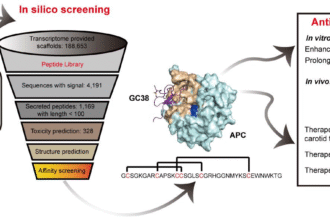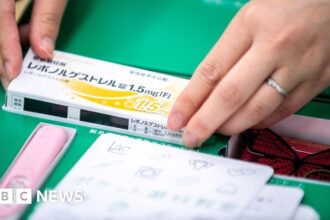One year after the deadly crowd crush in Seoul’s Itaewon district, researchers have found that many South Koreans continue to struggle with high levels of anxiety, depression, and post-traumatic stress. The findings suggest that the psychological scars of the 2022 tragedy remain deeply rooted across society, even among those who were not directly involved. The findings were published in the journal Scientific Reports.
The study, led by researchers from Chung-Ang University and Dong-Yang University, followed 651 adults over a year to assess changes in their mental health following the Halloween disaster that killed 159 people and injured more than 300. The team measured symptoms of anxiety, depression, and post-traumatic stress disorder (PTSD) at six, nine, and twelve months after the event. Results revealed that average scores for all three conditions remained above clinical cut-off levels throughout the year, showing no signs of significant improvement.
While only 7% of participants reported direct or indirect exposure to the disaster, more than 30% were consistently classified as high-risk for PTSD. Researchers believe this reflects the widespread psychological impact caused by the intense media coverage and repeated exposure to disturbing images shared on social networks. Such indirect trauma, they said, can be as damaging as first-hand experience.
Participants who avoided returning to Itaewon or who changed their drinking habits after the tragedy reported notably higher levels of anxiety, depression, and PTSD than those who did not. Avoidance of trauma-related places and increased alcohol use are known coping mechanisms, but the study found that these behaviours were linked to poorer long-term outcomes. The researchers warned that such patterns could lead to chronic distress if left unaddressed.
The study also found differences by gender, with women reporting more symptoms of depression, though rates of PTSD did not differ significantly between men and women. This contrasts with earlier research suggesting that women are typically more vulnerable to PTSD following disasters. The authors noted that trauma severity and coping mechanisms may be more important factors than gender in predicting who continues to suffer over time.
Mental health professionals in South Korea have conducted thousands of counselling sessions since the disaster, but the persistence of elevated stress and trauma symptoms indicates that many people still need psychological support. The researchers emphasised that post-disaster care must extend beyond the immediate aftermath, with long-term community-based interventions aimed at both direct victims and the general public.
The Itaewon disaster has become one of South Korea’s most painful national traumas in recent memory, raising questions about safety management, accountability, and the human cost of collective grief. The study’s authors argue that recovery must include sustained mental health support to prevent long-term psychological harm and to rebuild public trust in the wake of preventable tragedy.








